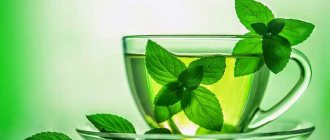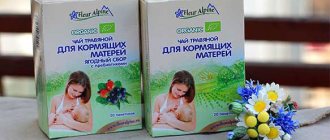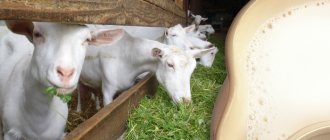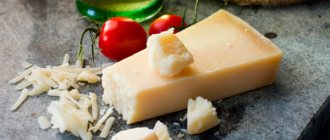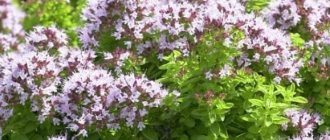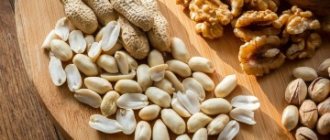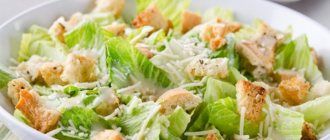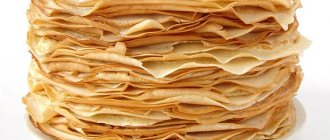Hot spices, for example, ginger, honestly, cinnamon, black pepper, chili pepper, curry and others, are useful because they can protect the body from infections, strengthen the immune system and improve metabolism. A small amount of spices in the diet even serves as a preventive measure for caries, and will also help normalize sleep and the functioning of the nervous system in general.
But there is another side of the coin - contraindications. Spicy food should not be consumed by those who have problems with the gastrointestinal tract (ulcers, gastritis, pancreatitis, heartburn, etc.), are prone to allergies and suffer from asthma. In addition, a large number of hot spices can burn the stomach, so adding them is necessary to enhance the taste of a particular dish.
Using cinnamon and ginger for breastfeeding
Cinnamon is not only a tasty and aromatic spice, but also healthy, and if a woman before giving birth was accustomed to using it in dishes, baked goods, or drinking tea with it, then she should not remove it during breastfeeding. But still, it is not advisable to use cinnamon and ginger during breastfeeding:
- every day;
- in the first three months of the baby’s life;
- when a child develops an allergy.
It is better for a nursing mother to use this aromatic spice no more than three times a week. If the baby has no allergies, it will be beneficial for:
- the presence of extra pounds in a young mother;
- for viral and fungal diseases;
- gastrointestinal disorders;
- diabetes mellitus
For the first time after the birth of the baby, it is better to use the spice in small quantities, adding it to tea in the morning. If the baby feels good throughout the day, you can use it in a larger volume.
Ginger can also be consumed while breastfeeding. It strengthens the immune system and relieves stress. Ginger during lactation is useful if the mother suffers from a viral or fungal infection. Ginger during breastfeeding does not cause negative reactions when consumed in small quantities.
Table: spices during pregnancy
For clarity, spices during pregnancy are collected in a table according to indications and contraindications.
However, the indications are also conditional - ginger relieves nausea, but tones the uterus, asafoetida anesthetizes and is taken when there is a threat of miscarriage, but if abused, it provokes spasms.
Basically, seasonings during pregnancy stimulate the appetite (of course, flavorful food is more attractive than bland food), and this is undesirable in order to avoid gaining weight.
Thirst caused by an abundance of spices leads to edema when drinking heavily. Therefore, moderation is the key!
| SPICES DURING PREGNANCY | |
| IT IS FORBIDDEN | CAN |
|
|
We see that some spices during early pregnancy can both alleviate the condition and cause harm.
You need to be smart about your diet and listen to your body.
Uses of celery
Celery can be used during breastfeeding, and there are no special contraindications.
On the contrary, it helps increase milk production, saturates the body of mother and child with vitamins and other beneficial substances. Celery improves digestion, helps reduce weight, and has a beneficial effect on vision. It also strengthens the immune system if consumed regularly.
Celery should not be consumed in the first weeks after childbirth, as it can cause increased gas formation in the baby. Like any food, it is better to introduce celery into your diet gradually, monitoring the child’s health. If no special reactions occur, it is good to use it daily, because celery contains amino acids, essential oils, and trace elements. Celery also has a beneficial effect on the nervous system.
Teas and medicinal mixtures
Experts have long proven that it is possible to consume herbal drinks during lactation if you take precautions and do not abuse them. Teas have a beneficial effect on the body, stimulate milk production, and during hypolactation it is recommended to drink decoctions of lemon balm, anise, cumin and fennel.
| Compound | How to cook | Frequency of reception |
| mix, leave for 1 hour and filter | 3 times a day |
| leave for 40 minutes, strain | drink 250 ml 2-3 times a day |
| infuse under a closed lid, filter | drink small portions 3 times a day |
Drinking fenugreek tea in moderation will help lower your blood sugar levels.
Benefits of fennel
Fennel has many beneficial properties, therefore it is widely used in folk medicine to treat diseases of the gastrointestinal tract, nervous system, and respiratory system.
This plant is rich in vitamins A, C, as well as calcium and iron. Fennel helps the body remove toxins and has a slight laxative and diuretic effect. It can be used not only by a nursing mother, but also given to a baby for abdominal pain. Fennel rarely causes allergies and is usually well tolerated by children.
Fennel helps enhance lactation. It is also effectively used for inhalation, since fennel has expectorant properties. Due to its anti-inflammatory effect, it can be used when conjunctivitis occurs. Fennel also has a wound healing effect.
Is it allowed to place cans?
Medical jars are small glass vessels that are used for inflammatory processes of the respiratory system (bronchitis, pneumonia), radiculitis, myositis, intercostal neuralgia. They are also effective in reducing muscle pain associated with excessive exercise.
Inserting cups during breastfeeding is not harmful for a nursing mother if you adhere to the following rules:
- when treating the upper respiratory tract, they should be placed without affecting the area of the mammary glands;
- do not place jars in the area of the kidneys, the projection area of the heart, or on the spine;
- The distance between the jars should be at least 3 cm.
The best places for placing glass jars are considered to be areas of the body with a good subcutaneous fat and muscle layer (under the collarbones, between the shoulder blades and under them). For muscle strains and myositis, cups are placed directly on the problem area. However, it is important to avoid areas of skin that have papillomas, moles, warts, wounds and abrasions.
The duration of the procedure during lactation should not exceed 15 minutes.
Uses of cumin
Cumin has been used since ancient times to treat a lack of milk in a nursing mother. This plant is also useful in the presence of fermentation in the intestines of both the baby and the woman. Cumin is indicated for kidney diseases, gastritis with low acidity.
It is useful to use for anemia. There are practically no contraindications.
Cumin also has a calming effect and helps with depression and other mental disorders. It speeds up metabolism and removes toxins. Cumin can be used as drops in ophthalmology.
Cumin is used both in the form of oil and in the form of infusion. To enhance lactation, prepare a decoction of the dried fruits of the plant. Cumin is also recommended to be consumed in the form of tea three times a day.
Many women love tea with oregano, but few people know that oregano is contraindicated during lactation. Oregano is used only as prescribed by a doctor. But it can be used as an external remedy for dermatitis and rashes. Oregano soothes the skin and eliminates discomfort.
Arugula also has lactogenic properties. If consumed in small quantities, arugula practically does not cause any unpleasant reactions in the baby.
Arugula saturates human milk with valuable substances and strengthens the immune system. Arugula is more often used in salads.
Decoctions that you should not drink
Women during breastfeeding limit themselves in many ways.
This applies not only to food, but also to drinks, namely herbal teas. After all, many herbs provoke allergic reactions. But this does not mean that you need to give up all drinks and drink only filtered water. Some herbs have a beneficial effect on the body of lactating women and their children. The main thing is to find out which ones? There are no absolutely safe herbs, because any plant can provoke allergies in a mother or her child. To avoid side effects, you need to observe moderation in everything, and consult your doctor before using a new decoction.
Relatively safe herbs for breastfeeding:
- Chamomile is a useful medicinal plant that relieves inflammation, reduces fever, and stimulates the body's defenses. Chamomile decoction helps to cope with colds; it is used for rinsing, douching, and inhalation. Chamomile is good for babies, it reduces the symptoms of colic, improves digestion, calms, and normalizes sleep. It is recommended to drink weak tea for no longer than 14 days.
- Young nettle saturates the body with vitamins, stimulates the immune system, and increases hemoglobin levels. For this reason, a decoction of nettles is indicated for anemia and loss of strength. The plant increases the production of breast milk and improves its nutritional quality. Nettle eliminates swelling, normalizes stool, and helps stop postpartum bleeding. After drinking nettle tea, you need to carefully monitor the child’s condition.
- Fennel (pharmaceutical dill) has a choleretic effect, eliminates spasms, and negatively affects pathogens. The plant improves digestion, exhibits sedative properties, and stimulates lactation. Pharmaceutical dill is used to relieve colic and normalize intestinal function. It is forbidden to drink fennel tea only if you are hypersensitive to its components. After use, you need to monitor the child’s reaction.
- Icelandic cetraria helps get rid of respiratory diseases that are accompanied by cough (inflammation of the bronchi and lungs). A decoction of the plant eliminates inflammation of the digestive tract. Before use, you should consult your doctor.
- Calendula has an antimicrobial effect, and therefore it is used for acute tonsillitis.
- Eucalyptus helps fight infectious, inflammatory and colds (sore throat, cough, etc.). In addition, the plant demonstrates calming properties.
- The rhizome of Potentilla erecta has a bactericidal, astringent effect, stops bleeding, and eliminates inflammation. A decoction of the roots of the plant helps with inflammatory and infectious diseases of the oral cavity (stomatitis, gingivitis, acute tonsillitis, etc.). The product has a beneficial effect on the digestive organs.
In addition, a lactating woman can drink tea made from lemon balm, linden, raspberry leaves, currants, hops, caraway, etc. Before using any plants, you should consult a doctor, since the risk of side effects (in the mother or child) always exists.
Harmful herbs
When drinking herbal teas during lactation, you should strictly adhere to the dosage indicated by the doctor. Doctors recommend avoiding herbs that stimulate hormone production or affect hormone levels. This restriction applies to plants with an intense laxative and sedative effect.
List of plants that negatively affect a newborn and lactating woman:
- A decoction of buckthorn is used to normalize stool, eliminate kidney and cardiac edema, postmenopausal disorders, etc. However, this plant is contraindicated during lactation, as the likelihood of side effects in a nursing mother and child increases.
- Mother and stepmother is contraindicated during breastfeeding. This is explained by the fact that the plant contains alkaloids.
- Elecampane is a powerful diuretic that reduces milk production. After 7 days of regular use of the decoction, lactation ends.
- A decoction of ephedra (coniferous shrub) is strictly forbidden to drink during lactation. The plant contains the alkaloid ephedrine, which causes headaches, nausea, vomiting, and disrupts the functioning of the heart, blood vessels, and respiratory organs.
- Ginseng tea is prohibited for nursing mothers and children under 12 years of age. The biologically active components of the plant accumulate in the tissues of the body, increase blood pressure, and cause dizziness and nausea.
- Valerian is one of the most effective sedatives. However, the herbal remedy is dangerous for a newborn; the risk of allergic reactions and constipation increases. The child becomes too lethargic or, conversely, overexcited.
- Wormwood decoction contains toxic substances that negatively affect the newborn. The plant causes an allergic reaction, disrupts the gastrointestinal tract, causes hallucinations, and convulsions. In addition, wormwood makes milk bitter and reduces milk production.
The benefits of breastfeeding are impossible to list. Medical researchers have recently fully agreed with the old truth that babies who are breastfed have strong immunity and developed mental abilities. How can you not trust your body and nature when, after the birth of a child, the female mammary glands begin to produce milk?
Breastfeeding is a reflex that is naturally carried out by our body, but minor problems with feeding still occur, especially among inexperienced mothers.
The herbal remedies discussed in this article are safe to use while breastfeeding. Some components of the herbs will pass into the milk, but will not harm the baby.
Herbs that stimulate lactation:
- Marshmallow (root)
- Slippery elm (bark)
- Knikus the blessed
- Stinging nettle
- Alfalfa
- Common raspberry (leaves)
- Oats (straw)
- Dandelion officinalis (root and leaves; leaves can be used as a vegetable seasoning or in salads)
Take them in the form of infusions: 15-30 g (1-2 tablespoons) of dry herbs per liter of water or tinctures: 10-30 drops 2-4 times a day. The plants on the list stimulate the secretion of the mammary glands. In addition, most of these herbs improve mood, eliminate mild forms of depression and improve the composition of breast milk.
Collection for a nursing mother. Provides general relaxation and good digestion during the postpartum period and helps withstand the “emotional storm” that hormonal changes generate, and also facilitates postpartum contractions.
- 8 parts dried chamomile flowers
- 8 parts dried catnip
- 2 parts fennel seeds
- 4 parts dried nettle
- 1 part lavender flowers
Mix all the herbs. Place 1 tablespoon of the mixture in a glass vessel, pour 1 cup of boiling water, cover and leave for 10 minutes. Strain. You can also use a stronger infusion. Drink 4 glasses a day.
Probably one of the main questions that plague breastfeeding mothers is whether they have enough milk? Typically, women who eat well, drink plenty of fluids, and breastfeed frequently will produce enough milk. If there is still little milk, the function of the mammary glands can be stimulated (with good nutrition and rest).
A nursing mother should drink at least two liters of liquid daily: water, herbal teas. Be sure to eat fresh fruit and vegetable juices and broth. To produce milk, the body requires an appropriate amount of fluid. If you don't drink enough, it can cause depression and fatigue. During this period, the body must be supported with foods containing calcium and iron.
Certain types of foods are believed to promote milk production. These include: barley, oats, beets, carrots (especially carrot juice), pumpkin, almonds, avocado, dark rice, leafy green vegetables, edible seaweed. All over the world, thick cereal soups and porridges are used to increase lactation.
One of the ancient means of promoting milk production is beer. It is rich in calories, and the hops it contains, like alcohol, are good for relieving stress. The non-alcoholic beer that has appeared now has approximately the same beneficial properties as regular beer. If breastfeeding is causing you stress, herbs can help relieve it.
Herbs not recommended during lactation
If you use herbal remedies while breastfeeding, you should be more careful about the dosage of the product and its effect on the baby’s body. It is best to consult a specialist with experience in using herbs during this period. The smaller the baby and the more breast milk he receives, the more careful you should be in choosing products. Avoid stimulating herbs that affect the hormonal system, strong laxatives and sedatives.
The plants listed in this list can negatively affect the baby’s vital functions and the lactation process:
- Calamus marsh
- Arnica montana
- Common barberry
- Periwinkle
- Colchicum autumnalis (avoid internal use)
- Borago (borage)
- Damiana
- Zhoster laxative
- Ipecacuanha
- Alder buckthorn
- May lily of the valley
- Lobelia
- Mandrake
- Coltsfoot
- Juniper fruits
- Nutmeg (small quantities ok)
- Comfrey officinalis
- mistletoe
- Butternut
- male fern
- Spring primrose (primrose officinalis)
- Tansy
- Wormwood
- Rhubarb Tangut
- Rue
- Sassaparilla
- Senna
- cohosh
- Thuja
- Phytolacca
- Cotton root
- Salvia officinalis
- Ephedra
About
Consumption of onions and garlic during breastfeeding
Onions and garlic have been used since ancient times for colds, fungal infections, and digestive problems. Garlic helps thin the blood, so it is indicated for problems with blood vessels. It is also used for the prevention of cancer.
Since garlic and onions, including green onions, have a bitter taste, it is believed that they can worsen the taste of breast milk. In fact, garlic and onions will not affect this quality if the mother consumes them in small quantities. Green onions, onions, and garlic improve the baby’s appetite and strengthens his immunity.

